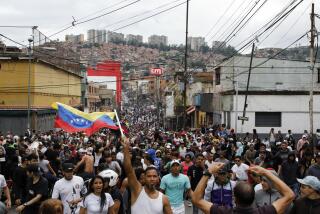What Now?
- Share via
Soviet leader Mikhail S. Gorbachev says he is pleased with the signs of popular political interest that this week’s national elections revealed. Hailing the way the process worked, however, is no substitute for heeding the compelling message it delivered. That message, where it was allowed to be expressed in multi-candidate contests, is one of profound pent-up dissatisfaction with the way things are and have been. Gorbachev and other reformers who clearly see the need to free the Soviet system from the dead weight of its institutional failures can understand the message. Whether they are prepared or able to respond to it with the urgency conditions demand is the most serious issue facing their country today.
The well-publicized race between Boris N. Yeltsin, deposed as Communist Party leader of Moscow 18 months ago and Yevgeny Brakov, the officially blessed director of a factory that makes limousines for high party officials, can be seen as a metaphor for the overall contest between advocates of greater reform and the dogged defenders of the status quo. Yeltsin won a crushing 89.4% of the vote, his triumph presaged by a series of campaign rallies notable for the grievances that were aired over poor housing, consumer goods shortages and the privileges bestowed upon the party elite. It is still possible, of course, that Yeltsin will go on being officially ignored despite his triumph. Far more serious will be whether the country’s leaders try to ignore the turbulent current of popular frustration and bitterness that propelled him to victory.
A final tally in an election conducted over 11 times zones may still be a week away. Early indications are that, where choice was allowed, candidates who proposed doing things differently from the way they have been done ran well. The trouble is that opportunities for real choice were limited. Fully 82% of all candidates were party members who had earlier passed muster for reliability. That pretty much assures that the great majority of the 1,500 members chosen for the Congress of People’s Deputies will be Establishment figures. That in turn indicates that the 450 representatives the Congress will elect to the power-wielding Supreme Soviet can probably be counted on to be cautious when it comes to proposing or endorsing major economic and social changes.
In that event, what will the election have shown? In Gorbachev’s enthusiastic view, it marked significant progress toward democracy. To be content with that, though, is to confuse the process with its results. The system of choosing leaders has been modestly changed. The vital question for the Soviet Union’s future is, with what consequences?
More to Read
Sign up for Essential California
The most important California stories and recommendations in your inbox every morning.
You may occasionally receive promotional content from the Los Angeles Times.













